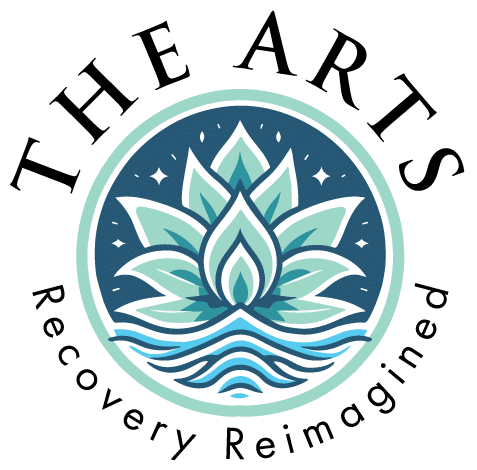Understanding how long fentanyl withdrawal lasts and symptoms of fentanyl withdrawal helps individuals and families prepare for the road to recovery. Fentanyl is an incredibly powerful synthetic opioid that has become a critical focus in the fight against addiction.
While its medical applications include pain relief for severe conditions, its potency makes it highly addictive. When someone decides to stop taking fentanyl, they are likely to face challenging withdrawal symptoms. This blog will explore how long fentanyl withdrawal lasts, what symptoms to expect, and vital strategies to manage withdrawal safely and effectively with professional help.
What is Fentanyl?
Fentanyl is a powerful synthetic opioid that was originally created to help with terminal cancer treatment and pain relief. It is 100 times more powerful than morphine, making it a highly potent and dangerous drug.
In recent years, fentanyl has gained popularity as a recreational drug due to its ability to create intense feelings of euphoria and relaxation. Unfortunately, this has led to an increase of opioid overdose deaths (primarily fentanyl), which rose 55.6% from 2020 to 2021 alone.
While stopping fentanyl use is a life-changing and life-saving decision, it is not an easy process. The body and mind become dependent on the drug, leading to withdrawal symptoms that can be extremely uncomfortable and even dangerous. This is why seeking professional help for fentanyl addiction is crucial.

What are Fentanyl Withdrawal Symptoms?
Withdrawal occurs when the body and brain attempt to adjust after becoming dependent on fentanyl. Because fentanyl drastically alters the brain’s receptors to tolerate higher levels of opioids, stopping the drug leads to a sudden chemical imbalance. This then triggers uncomfortable and often severe symptoms, including:
- Anxiety and irritability
- Muscle aches and joint pain
- Runny nose
- Excessive sweating
- Tearing
- Nausea
- Vomiting
- Stomach cramps
- Increased heart rate and blood pressure
- Cravings
The severity of these symptoms can vary depending on the individual’s level of dependence, the type and amount of opioid used, and their overall health. These symptoms typically start within a few hours after the last dose and can peak within the first 24-72 hours.
How Long Does Fentanyl Withdrawal Last?
Like opioid withdrawal, fentanyl withdrawal varies depending on how you use this drug. Opioid withdrawal typically differs based on whether a drug is short-acting or long-acting. So how long does fentanyl withdrawal last? Timelines are similar to opioid withdrawal timelines, which include:
- Short-acting opioids: Onset of opioid withdrawal symptoms 8-24 hours after last use; duration 4-10 days.
- Long-acting opioids: Onset of opioid withdrawal symptoms 12-48 hours after last use; duration 10-20 days.
When injected, fentanyl is considered short-acting and may have a faster onset of withdrawal symptoms compared to long-acting opioids like methadone. But, if fentanyl is taken orally, its duration of action may be longer.
Factors That Can Impact Fentanyl Withdrawal Duration
Several factors influence the withdrawal timeline and severity, including:
- Dosage and Length of Use: The higher the dose and the longer fentanyl has been used, the more profound the physical dependency and the longer the withdrawal period.
- Method of Use: Injecting or smoking fentanyl introduces the drug into the system more rapidly than oral ingestion, potentially leading to more aggressive withdrawal symptoms.
- Individual Health: A person’s physical health, age, metabolism, and co-existing health conditions all affect how quickly and effectively they can process withdrawal.
- Polydrug Use: If fentanyl was used alongside other substances like alcohol or benzodiazepines, withdrawal can be more complicated and intense.
Treatment Options for Fentanyl Withdrawal
Due to the potency and severity of fentanyl withdrawal, seeking professional treatment can significantly improve the detoxification process and ensure safety. Options include the following.
Medical Detox Programs
A medically supervised detox is often critical for fentanyl withdrawal due to the risks and even fatal complications associated with severe symptoms. Medical professionals can offer medications to alleviate symptoms, such as:
- Methadone or Buprenorphine to reduce withdrawal severity and cravings.
- Clonidine to address symptoms like anxiety, restlessness, and sweating.
- Over-the-Counter Aids for additional support, such as anti-nausea medications or sleep aids.
Outpatient and Residential Rehab
After detox, ongoing treatment is crucial to address the psychological aspects of addiction, which include counseling, therapy, and support programs. Facilities like The Arts Recovery in Canoga Park, CA, provide outpatient programs, intensive outpatient programs (IOP), and partial hospitalization programs (PHP) to help clients build a sustainable recovery plan.
Take the First Step to Recovery with Professional Help
Fentanyl withdrawal is a challenging but necessary step toward reclaiming your health and life. Seeking professional help not only makes the process safer but also sets the foundation for long-term recovery. At The Arts Recovery Rehab, we provide comprehensive substance abuse and mental health treatment in Canoga Park, CA, including outpatient care, intensive outpatient programs, and partial hospitalization programs. With the right support, you can break free from the cycle of addiction and work toward rediscovering the best parts of yourself again.
FAQs about Fentanyl Withdrawal
How long does it take to detox from fentanyl?
Fentanyl is a short-acting opioid that takes between 4-10 days to detox from, depending on someone’s level of addiction such as how it is used. However, it’s important to note that detox is only the first step in recovery and long-term treatment is necessary for sustained sobriety.
Is fentanyl withdrawal the same as opioid withdrawal?
Yes, fentanyl withdrawal is similar to opioid withdrawal as it also acts on the opioid receptors in the brain. However, because fentanyl is a more potent and fast-acting drug, its withdrawal symptoms may be more intense and severe compared to other opioids.
Can someone overdose on fentanyl?
Yes, overdosing on fentanyl is a significant concern due to its high potency. Even small amounts can lead to overdose and death. It’s important for individuals using fentanyl or other opioids to seek help and medical assistance if they feel like they are experiencing an overdose.
How can I support a loved one struggling with fentanyl addiction?
Supporting a loved one struggling with fentanyl addiction involves understanding the nature of their addiction and offering non-judgmental support. This can include encouraging them to seek professional help like that we offer at The ARTS Recovery, providing emotional support, exploring options like sober living, and educating yourself about fentanyl addiction and its effects.
Are there any treatments available for fentanyl addiction?
Yes, there are various treatments available for fentanyl addiction that aim to address both the physical and psychological aspects of the addiction. These can include medication-assisted treatment, therapy, support groups, and holistic approaches such as acupuncture or mindfulness practices. It’s important for individuals struggling with fentanyl addiction to seek professional help in finding the right treatment plan for long-term sobriety.

